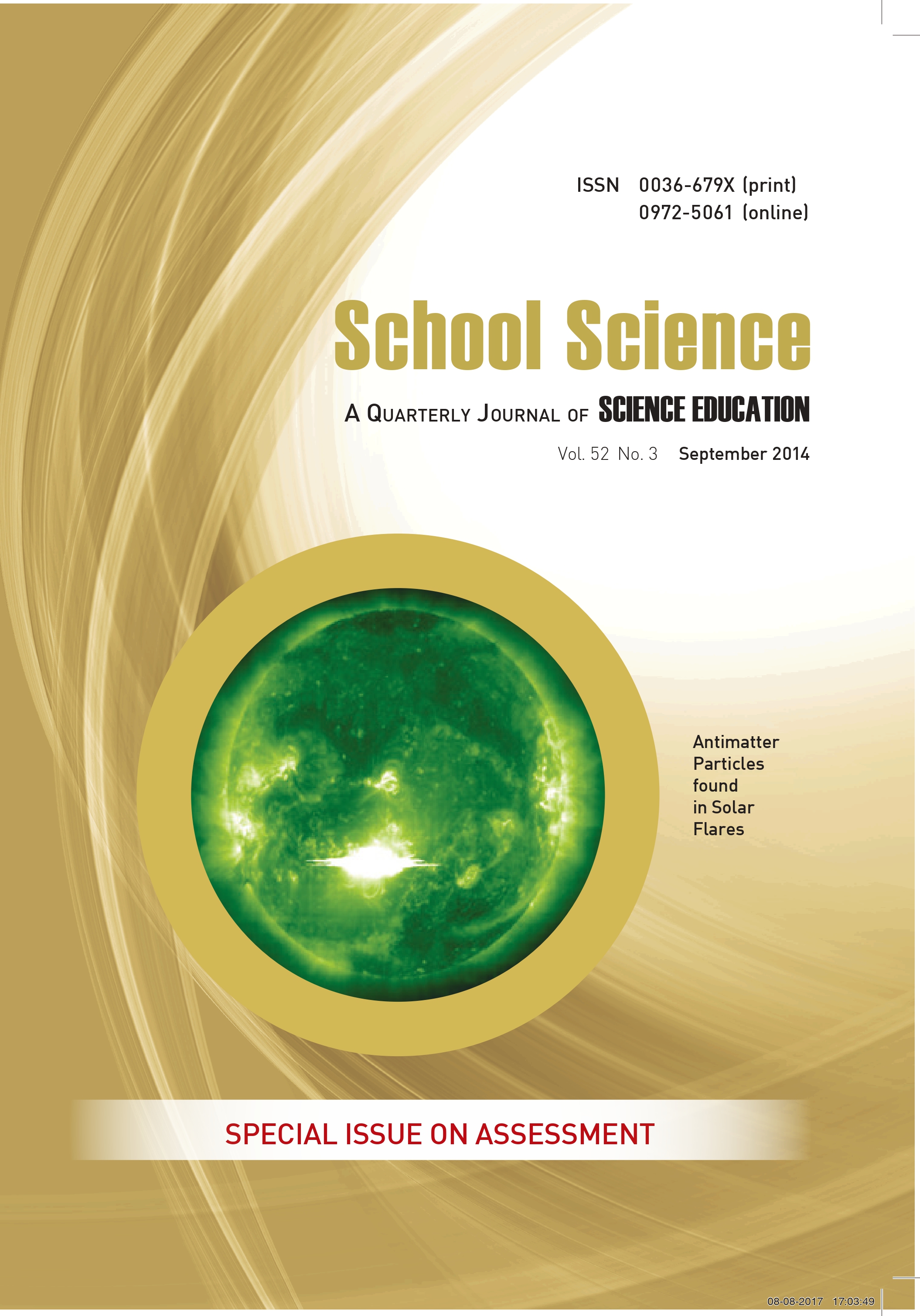
Published 2014-09-30
Keywords
- Rubrics,
- Attitudes and habits,
- Factual knowledge
How to Cite
Abstract
Assessment defined as “the systematic process of gathering information about what a student knows, is able to do, and is learning to do” is an integral part of classroom instructions. Broadly, any activity or experience that provides information about student learning is also termed as assessment. This gives the teacher a clear idea about student’s progress through continuous observation of students in action and not only through formal tests, examinations and projects. The major purposes of assessment are to look at the teaching strategies and improve learning, and to monitor student’s progress in achieving learning outcomes at the end of a class or course of studies. This nowhere should tend to evaluate and label student’s performance . Learning is a natural process and takes place with varied and targeted experiences. This is more true in case of science and mathematics learning — these subjects are exploratory in nature. To assess students’ science and mathematics knowledge, skills and strategies, and attitudes, teachers require a variety of tools and approaches. They ask questions, observe students engaged in a variety of learning activities and processes, and examine student work in progress. They also engage students in peer-assessment and self-assessment activities. The information that teachers and students gain from assessment activities informs and shapes what happens in the classroom; assessment always implies that some action will follow.
